Refugees as a means to an end – The EU's most dangerous man
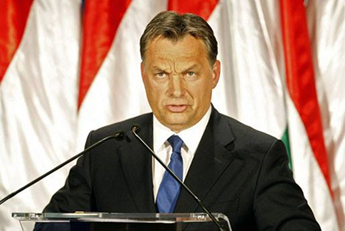 |
|
|
The most dangerous man in the EU today |
|
Also available in Turkish: Mülteciler ve Orban'ın Haçlı Seferi
Dear friends of ESI,
One week ago we published an analysis and concrete proposal how the European Union might deal with the issue of refugees, especially Syrian asylum seekers crossing the Aegean to reach Greece, and then the Western Balkans, to get to Germany:
ESI policy proposal: Why people don't need to drown in the Aegean (17 September 2015)
Die Zeit, Andrea Böhm, "Zäune, Paragrafen, Drohungen – nützt alles nichts" ("Fences, paragraphs, threats – all to no avail") (21 September 2015)
Frankfurter Allgemeine Zeitung, Michael Martens, "Auf dem Meer gibt es keine Mauern" ("There are no walls on the sea") (18 September 2015)
There were many reactions, in the media and among policy makers. This week we will publish an update, assessing the still inadequate proposals adopted in the EU.
At the same time the dangers of the failure of European leaders to address this issue are becoming clear.
While EU institutions and governments discuss how to deal with the consequences of this refugee crisis (how to register, allocate and accommodate tens of thousands) or dwell on steps which have at best an impact in the very long-term (diplomacy or limited interventions in Syria) one leader stands out for his ability to use the refugees as a mean to a very different agenda: Viktor Orban. So far, he has been astonishingly successfully.
Viktor Orban offers no credible or practical proposals how to deal with the causes of displacement; he also has no credible proposals on how to stop the loss of control on the EU's external borders. Hungary's fence is, so far, largely political symbolism: it has not halted the arrival of large numbers of refugees in the EU. But European politics, and not refugees, is what this crisis is all about in Orban's eyes. He does not need to offer a solution; he offers an interpretation of the failures of everybody else.
Orban pushes a clear narrative: the problem is the "liberalism" of European leaders, particularly, but not only, in Germany. In a speech on 5 September this year Orban puts his cards on the table: this crisis is in fact a welcome opportunity to end the EU's association with universal human rights; to effectively abolish the right to asylum for Muslim refugees, and to create a different, illiberal, Europe. He pretends to be concerned about solving a problem; in fact, he welcomes the problem and waits to benefit from a deepening crisis.
In this way Orban, who was for many years the vice president of the Liberal International (1992-2000) and then the vice president of the European People's Party, is taking aim not only at the left or at liberals, but also at the mainstream European centre-right. Orban accuses its leaders of being soft, making "mad" proposals and acting immorally.
Orban is aligned himself on what he sees as the decisive issue of the era with the European far-right of Marine Le Pen and H.C. Strache. For Orban and the far-right the refugee crisis is a means to an end. To see how, please take a few minutes to read the short text below.
This is why one should not expect any concrete proposals from him. It is urgent, however, for mainstream leaders across Europe to discuss serious and not fake proposals on how to both respect the right to asylum and control the EU's borders. It is the weakness of the mainstream that allows extreme positions like Orban's to look strong.
Many best regards,

Gerald Knaus
A Means to an End
Refugees and Orban's crusade
(1)
Friday, 4 September 2015, was one of the most dramatic days in the European refugee crisis.
In Budapest, Hungarian police block thousands of refugees from entering the train station, who then set off by foot along the highway towards Austria.
At the same time, Hungarian Prime Minister Viktor Orban meets with his counterparts from Poland, the Czech Republic and Slovakia. They express
"profound sadness over the loss of lives of thousands of people in the context of the current migration situation in Europe."
They call on the EU to "solve the situation in Libya, Syria and the Middle East." They also label any proposal of a mandatory quota or burden-sharing arrangement as "unacceptable."
Later that day, Germany and Austria decide to let this group of refugees pass through to Germany.
(2)
A day later, on 5 September, media images from Munich show arriving refugees welcomed by crowds of people applauding. Refugees hold aloft pictures of Angela Merkel.
Viktor Orban would use these images to argue that the refugee crisis was caused by the German decision to let the refugees in.
In fact, Hungary had unilaterally suspended EU rules on asylum three months before (23 June), claiming that its system was "overburdened" and that the "boat is full." It made no further preparations for any arrivals throughout the summer, except, belatedly, constructing a fence.
(3)
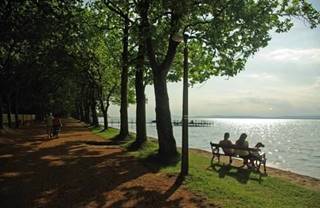
Meanwhile, also on 5 September, Hungarian prime minister Viktor Orban comes to the region of Lake Balaton and the nearby village of Kötcse. He meets his party faithful at the annual "civic picnic".
While others wonder what to do about the refugees crossing Hungary, Orban focuses on a much larger issue: the end of an era in Europe.
Orban is convinced that a new era, born from the chaos of the refugee crisis, offers a huge political opportunity, to him and his party.
(4)
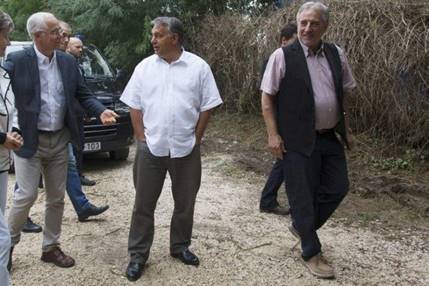
The meeting in Kötcse is closed to the press. The highlight: a speech by Viktor Orban. A Hungarian news site that talked to participants noted:
"For the Fidesz members … the Prime Minister and party leader made the cracks in the party disappear by switching to a higher gear on the refugee issue. The bellicosity and the eagerness that Orbán radiated made even those who had started to lose faith in the party after the infighting of 2014 feel optimistic."
Later, Orban proudly posts his speech on the official website of the prime minister's office.
(5)
Orban opens with a pledge to speak the truth plainly and directly:
"I want to say a couple of things about the issue of asylum and immigration, but in a different context and with different vocabulary than I would do in a more public forum. I will try to speak in a way that politicians do not usually speak…"
(6)
In recent years
"there is something which fundamentalists might call a crusade, but which moderates like me would rather describe as a challenge posed by the problem of 'the Islamization of Europe'. Someone somewhere must reveal this for what it is, must halt it, and must replace it with another, counteractive policy."
He notes that in the face of this, Hungary, and he as its leader, should offer guidance to the rest of Europe:
"We can assume that not only in Hungary but also in Europe, people are demanding from Hungarians – and from the elected leaders of this country – that, since the good Lord has helped us through so much, we should tell them what we know."
(7)
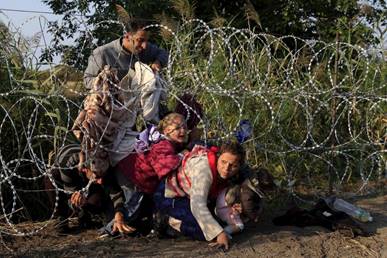
Orban explains:
"we are inundated with countless immigrants: there is an invasion, they break down fences, and it is clear to us all that they are not seeking refuge, and are not running for their lives."
(8)
So why are they coming? This crisis is not really, Orban argues, about the war in Syria. It is about the West foolishly raising expectations and making promises it could not keep:
"They want lives like the ones which we live. The only question is why we should be surprised. Well, Ladies and Gentlemen, for years we have taught them and told them that in fact this world is a global village … We told them that there are universal human rights which apply equally to everyone, whatever corner of the Earth they may be in…
After having proclaimed global, universal human rights, having forced our ideology on them and having elevated freedom of information above all else, having sent our celebrities into their homes, now we are surprised that they are knocking on our door."
(9)
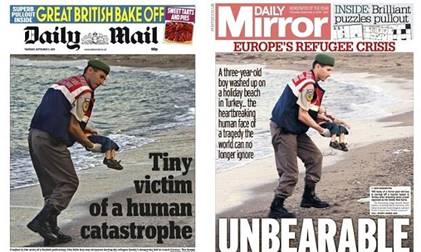
Orban adds that these migrants have no heart, even risking the lives of their children:
"What I am about to say might seem harsh, and I apologize if anyone is offended. We all saw the picture of that little boy on the beach. No heart could remain unmoved, but still we must ask: who killed that little boy? His parents!"
(10)
Then he changes tone. He repeats, several times, that this crisis is actually an opportunity. It "offers the chance for the national-Christian ideology, way of thinking and approach to regain dominance – not only in Hungary, but throughout the whole of Europe. This is the opportunity. This will be the essence of my speech."
The refugee crisis leads to an "identity crisis. This seems to be bad news, but it is the first good identity crisis I've ever seen."
And even:
"If we step back from the whole issue and its specific features and conceptually reflect on what is happening, then we see that we have a huge opportunity, if we fight well in this debate, to restore the prestige and appeal of national identity and Christian identity, in opposition to the liberal identity."
(11)
Hungary needs to take the lead because only here one can speak freely about what is needed:
"even expressing these questions in these terms is not allowed in European politics, and is almost life-threatening. This is a totally Hungarian luxury…
The fact that we are sitting here, and we can talk like this about these issues, cannot happen anywhere else in Europe. Such a meeting could not be convened in Germany, where it would not be possible to say such things; nor could it in France – and it is even risky in Poland."
(12)
"My position is that what we are experiencing now is the end of an era: a conceptual-ideological era. Putting pretension aside, we can simply call this the era of liberal babble. This era is now at an end, and this situation both carries a huge risk and offers a new opportunity."
The reason why this can be discussed in Hungary alone is his own government:
"Today liberals dominate Europe; make no mistake, the conservatives in Europe today are also liberals: not willingly, but by yielding to coercion. Because today a very large proportion of the channels through which the thoughts and policies of conservatives are interpreted and mediated are in the hands of liberals."
(13)

European liberalism renders Europe weak and vulnerable – a victim of its irrational generosity:
"Europeans want to see themselves as good… Liberals also want to see themselves as good. They also have an idea of what it means to be a good person… freedom of movement, universal human rights, and so on. Now this is producing disastrous consequences."
"I am convinced that it is no longer possible in Europe to both see ourselves as good in the liberal sense and to live in prosperity. I might say that the most dangerous combination known in history is to be both rich and weak… It is only a matter of time before someone comes along, notices your weakness, and takes what you have."
(14)
What is needed instead? A new conservative, illiberal identity, focused on the family and nation:
"I think that the Christian identity reveals to us a completely clear order of importance or priority. First of all, we are responsible for our children, then for our parents. This comes before all else. Then come those with whom we live in our village or town. Then comes our country, and then everyone else may come."
"Christian thinking is not reflected in the kind of politics which invokes compassion and understanding, but which does not recognize this order of priorities."
As to the international sphere, he noted that foreign policy "has always turned out to be about money, oil, raw materials ":
"Let us boldly state that liberal foreign policy at the world political level is nothing more or less than organized hypocrisy"
(15 )
This new illiberal era needs new core values in everyday life. He calls for
"everyday patriotism. This is not something of an intellectual nature, but a vital instinct, a daily routine: going into a shop and buying Hungarian products; when I want to employ someone, employing a Hungarian."
This is what the young should be taught.
(16)
And one way to strengthen this is to fight against the arrival of Muslims, even those deserving asylum. Hungary – and Europe as a whole – "must protect its ethnic and cultural composition":
"Allow me to mention a conversation I had with a talented, experienced, but not very hopeful European politician, who was no longer in frontline politics, and who asked me to explain what I meant when I said that we do not want a significant Muslim community in Hungary. I said that the meaning of this sentence was the normal, everyday one. The reply I received was that one cannot say such a thing. I asked why not."
(17)
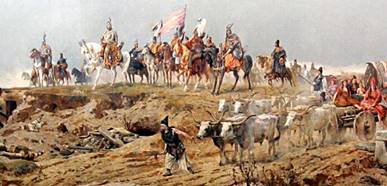
This is a war which Orban intends to win for his nation:
"if Hungarians say that they do not want [Muslim migration], no one can force them to do so. In the end – and keep this in your sights – in the very end this will be the battle which we must win."
(18)
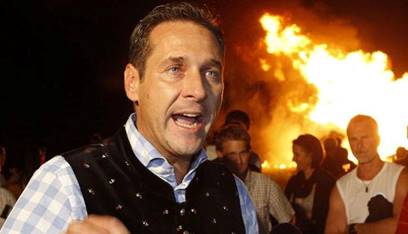
Orban also explains that in the battle against liberalism and migration, Hungary needs allies:
"The question is whether there will be enough of us in Europe who say that every country has the right to change its ethnic and cultural composition as it likes, and no country or the Union has the right to force others to do this. We are now in a good position, and we must defend this position."
Here the leader of the Austrian far-right Freedom Party, H.C. Strache, who strongly defended Orban's policy on immigration.
(19)
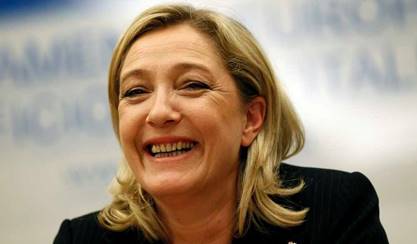
There is a need for European politicians with vision:
"instead of healthy patriotism, some unrestrained, liberal, confused babble has taken over, and where we ourselves are unable to say why we make the decisions we do, rather than right, patriotic, national everyday ones."
This illiberal message needs to be sold well:
"The bad news is that when we do this, it must be characterized by the following words: modern, cool, trendy, sexy, upmarket."
(20)
Only those leaders who recognise the demands of this new era will survive. Earlier, in July 2015, Orban had explained that a good politician needs a clear vision of what the future will bring. In the political arena, "the winners will be those who arrive at the right conclusions more swiftly and more courageously."
Never mind those who make fun of him as a "dictator." They miss the big picture.
(21)
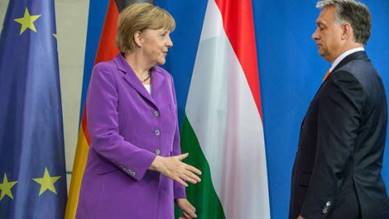
On 3 September, Orban had stated at a press conference in Brussels:
"We Hungarians are full of fear, people in Europe are full of fear, because we see that European leaders, among them prime ministers, are not able to control the situation."
When he meets Angela Merkel, he smiles. As Orban put it in an interview with Die Presse: according to the Hungarian constitution, "the German Chancellor is always right."
At the same time he describes her ideas on how to deal with asylum seekers as "bordering on insanity." This is a message he repeats, over and over again.
(22)
He also repeats everywhere that he was the only one who had seen this crisis coming.
In June 2015, Orban had organised a "national consultation" on immigration in Hungary. He sent a questionnaire to every household. And learned that Hungarians agreed with him: "we must support Hungarian families and children rather than migration."
What is at stake, he keeps repeating, is "whether that which we call Europe today will at all survive."
(23)
He also argues that he is the only one who knows what to do about refugees. They should remain where they are, in camps (although 90% of Syrian refugees in Turkey are not in camps).
As Orban tells Bild Zeitung on 12 September, the EU should "celebrate a holy mass every week for Turkish president Erdogan" as a thank you to Turkey for hosting so many refugees.
The EU should help out Turkey with more money. As the price of keeping them where they are.
(24)
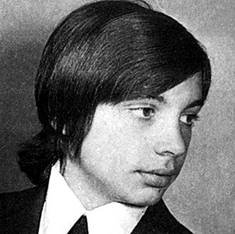
So, who is this man who attacks the proposals of other European leaders – even conservatives – as insane and calls for a return to the illiberalism of the past? What drives him?
In 1988, at the age of 25, Viktor Orbán gave an interview to the TV programme "Fekete Doboz" (Black Box). He spoke about his youth. He also talked about his first experience with politics:
"I was a very active member of the Communist Youth League (KISZ). In secondary school, I was even the secretary of a basic KISZ organisation, until my third year in secondary school. It was a natural thing… This was a good feeling, I felt that this was the right thing to do… we had the money, we had an assembly room to hold events, why shouldn't we do this well?"
(25)
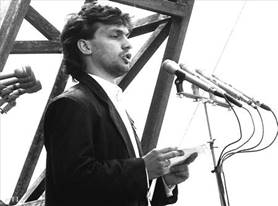
Orban was never a dissident under communism. But in a famous speech in 1989, he seized a chance to reinvent himself. He spoke at the reburial of a pro-reform communist (Imre Nagy), who had been toppled by the Soviets in 1956 and executed two years later.
He attacked not only communism, but also the reform communists who were at that moment preparing the transition to democracy. He demanded that Soviet troops leave Hungary.
It was astute politics, capturing the mood of the time, and it made Orban's name as a politician. But in fact, regime change was already underway. The Hungarian Socialist Worker's Party had already opened negotiations with the Opposition Roundtable on arrangements for the transition.
Three weeks later then-Hungarian foreign minister Gyula Horn and his Austrian counterpart presided over the dismantling of the barbed-wire fence and minefields separating Hungary from its western neighbor in what heralded the fall of the Iron Curtain.
(26)
"The speech was a political masterpiece. Its place in history is another question. It did not require real courage, since Grósz [the Secretary General of the Hungarian Socialist Worker's Party] had already held talks about the withdrawal of Soviet troops with Gorbachev, and by the end of 1988, he has realised that the time for the withdrawal had come. But people didn't know about this, so such a speech must have been energizing."
Orban made his name as a Jacobin: the ancien régime was dead. A new era had dawned. Moderation was no virtue. Compromise was a sin.
(27)
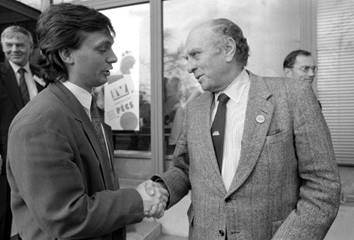
So what did Orban now become? A liberal!
He sought out influential German liberals. He also led Fidesz to join the Liberal International, the world federation of liberal parties. And the man who attacks liberalism today as an existential threat to European civilisation served, from 1992 to 2000, as vice president of the Liberal International.
(28)
On 8 February 1992, he stated "that by joining the Liberal International, Fidesz has confirmed its Western European orientation for the long run."
A news agency reported at the time:
"According to Viktor Orbán, it is only in Hungary, where, in our region, liberals can become an alternative to the present conservative government… In the International, the party's work will be related to pragmatic questions important to liberalism, related to refugees, human rights, minorities and economic freedom."
(29)

Fast forward. In summer 2014, Orban declared that liberalism had no place in Hungary. He was building an "illiberal state", ready to "break with the dogmas and ideologies that have been adopted by the West, and keep ourselves independent from them."
He explained his fascination with the success of illiberal states like Russia, China, even Azerbaijan.
(30)
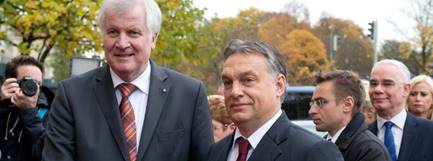
Of course, one had to move carefully. For now. And find friends anywhere who might help. So throughout the summer of 2015 he courted in particular the Bavarian CSU, the coalition partners of Angela Merkel in Berlin.
(31)
In 2014, looking back over the previous two decades, Orban explained:
"Within Fidesz – we were a radical organisation, a radical anti-communist, independence movement – we talked a lot about the question of how far we should go with our radicalism and demand deep changes, and regularly during these talks no one was able to say where that line was, which, if we cross it, may backfire. So we chose the logic of being as radical as possible…"
(32)
Thus, Orban neatly explained away any contradiction. He had moved from being a young communist to become a liberal, then a conservative, and now an illiberal nationalist. But in each case, the common thread is that he was radical.
Now, on 5 September 2015, Orban explained that the future was "everyday nationalism". It just needed to be expressed in "fresh and youthful language":
"patriotic, nation-based, everyday life instincts, life advice and thoughts – together with the public opinions based on them – are not present in the debate. But we cannot avoid this battlefield, and if we do not rally to the call, it will be decided on the battlefield anyway. We must rally, go there and win, Ladies and Gentlemen! This will be a programme for many years to come…"
(33)
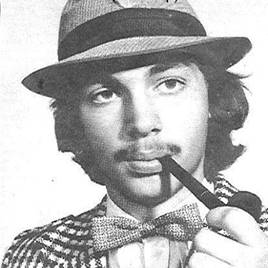
He, and Hungary, could lead Europe in this battle against the left, against liberalism, against migrants and Muslims.
This is Orban's new bet. Nobody can solve the current refugee crisis. Nobody in Hungary will blame him for refusing to try. If his fence does not work, he blames the left, which, he explains "does not like the Hungarian people"; European "liberals" and naïve conservatives.
He assumes that most people in Europe do not care about rights; that other European leaders are clueless; that a new conservatism will arise, illiberal, opposed to migration and Islamisation. Illiberalism can become cool.
For Viktor Orban, this is, so far, a very good crisis.
